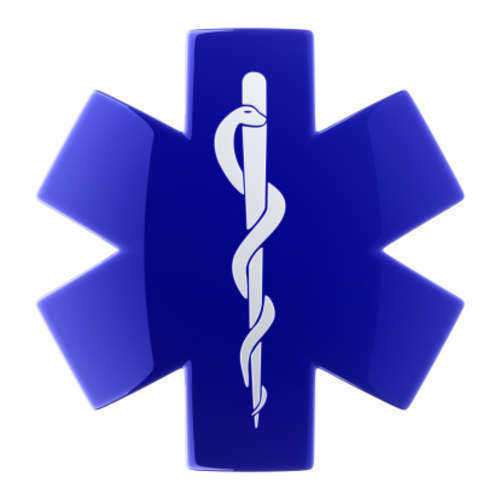Elder Guardianship Guide



Once an individual has selected an individual to be his/her health care representative, the necessary legal documents must be obtained and completed. Thankfully, the necessary forms for appointing health care proxies can be found online, free of charge. Notaries and attorneys are not necessary when completing these forms, but in most states the document must be signed in the presence of two individuals over the age of eighteen.
The laws regarding health care proxies and witnesses vary by state, so it is essential to review the laws specific to one’s own state. An individual may wish to detail the medical treatment and procedures that he/she wishes to accept and refuse on the document, in order to ensure that his/her wishes are followed. An individual may also wish to create a living will for this purpose.
If an individual wishes to revoke the authority that has been granted to a proxy, he/she may do this at any time. Due to the relative ease of appointing a health care proxy and the protection that it may offer ill and deteriorating individuals, it may be advantageous for an individual to give weight to this legal document.

Advance
directives are legal forms and documents that provide individuals with
opportunity to detail their wishes, generally regarding medical treatment and
life extending treatments, so that their desires are upheld in the event that
he/she sustains a debilitating injury that hinders his/her ability to
effectively make decisions for himself/herself. When an individual has
completed the necessary processes to establish advance directives, medical
professionals are required to adhere to these legal documents.
Therefore, if an
individual creates a Do Not Resuscitate order, doctors, nurses, and paramedics
will be legally bound to respect the parameters of this document and will not
be permitted to initiate CPR. If an individual chooses to establish advance
directives, he/she should be sure to be extremely specific and detail every
procedure and treatment that he/she will accept, as well as those he/she would
not want to be subjected to.
Background
With advances in modern technology, it is now more important than ever for an
individual to ensure that his/her wishes are well documented, especially
regarding his/her health care and medical treatment. Groundbreaking medical
treatments have given medical professionals the ability to significantly extend
life, even for patients who have been diagnosed with illnesses that were once
considered terminal.
While this is generally considered to be a positive
feature of health care, technological advances are often utilized to lengthen
the life expectancy of individuals who are suffering from excruciating pain, thereby
extending the period of their suffering without offering them a cure for their
condition. While many patients will accept this regardless of any discomfort
that may be associated, some individuals do not wish to continue living if
their quality of life will be substantially decreased.
Advance directives
provide individuals with the ability to express their desires in a legally
binding document which medical professionals will be obligated to
satisfy.
Living Wills
Each individual maintains different mentalities and beliefs regarding life
support and life-prolonging treatment. While some individuals may expect
medical professionals to attempt resuscitation and engage in extraordinary
measures to extended his/her life, others do not wish to receive this
treatment. If an individual is against obtaining some or all forms of life
prolonging treatment, he/she should create a living will.
A living will is a
legal document in which an individual can record his/her wishes in the event
that he/she becomes unresponsive due to a terminal illness or a tragic
accident. This will inform doctors and paramedics about a patient’s wishes and
desires regarding medical treatment and procedures. If a living will has been
established, medical professionals must adhere to this legally-binding
document. When an individual decides to create a living will, it is important
for him/her to be extremely specific about the treatment and procedures that
he/she will accept, and the medical attention that he/she does not want.
Durable Power of Attorney
It is important for individuals to complete all of the necessary steps to
ensure that his/her wishes will be upheld in the event that he/she slips into a
coma/vegetative state. In many cases, this will require more effort than
creating a living will and signing a Do Not Resuscitate order. Some individuals
choose to appoint a durable power of attorney.
An individual chosen to become a
power of attorney will assume responsibility for ensuring that the appointee’s
wishes are upheld. A durable power of attorney is often required to make
difficult decisions regarding appointee’s fate. He/she may be required to
decide when to halt life-prolonging treatment and cease life-sustaining
procedures. The power of attorney will be obligated to advocate for the
incapable individual and confirm that medical professionals are acting in
accord with the desires previously set forth by the patient.
Health Care Proxies
A health care proxy, like a durable power of attorney, plays an important role
in ensuring that an individual’s medical wishes are upheld if he/she becomes
incapacitated or unable to speak for himself/herself. An individual who is
appointed as a health care proxy will maintain the same fundamental
responsibilities as a durable power of attorney.
He/she will be granted
extensive power and authority over any decision related to the appointing
individual’s health care. Therefore, it is essential for an individual to
designate an individual that he/he trusts to assume the responsibility of
carrying out the duties of a health care proxy. A health care proxy should be
an individual who is reliable and responsible, as well as someone who is close
to the appointing individual.
Once an acceptable health care proxy is chosen,
it is important for an individual to thoroughly discuss all of his/her desires
and feelings, as they relate to life support and life-extending treatments. A
health care proxy should be sure about all of the treatments an individual
would disapprove of, as well as which ones he/she would accept.
Guardians
Guardians are individuals who become legally responsible for the care of
another human being. Guardianship becomes extremely important in the event that
an individual becomes seriously injured or incapacitated before he/she has
appointed a health care proxy to advocate for his/her wishes regarding medical
treatment.
In the event that vital medical decisions must be made and nobody
has been appointed to address these decisions, a judge will appoint a legal
guardian. Once appointed, a guardian will obtain the responsibility of making
all of the decisions related to his/her ward’s health care and medical
treatments. This may include deciding whether or not to initiate or intervening
treatments.
If a family member or a friend feels that he/she is best suited to
take on this role, he/she may choose to petition a court for guardianship
rights. If there is a dispute or conflict over guardianship rights, a guardian ad
litem may be appointed to make any immediate and necessary decisions while
the judge attempts to determine who would make the most effective guardian.
“Do Not Resuscitate” Orders
If an individual suffers from respiratory failure or
cardiac arrest, medical professionals will likely attempt to resuscitate
him/her using cardiopulmonary resuscitation, or CPR, an emergency technique
that restarts circulation and breathing. However, many individuals do not wish
to be resuscitated once they stop breathing.
There are many factors that may
influence an individual to obtain a Do Not Resuscitate order. These legal
documents are most commonly petitioned for by elderly individuals entering a
hospital for surgical procedures or by individuals suffering from a terminal
illness. In these instances, resuscitation would continue to prolong an individual’s
pain and suffering. Often, when an individual experiencing these conditions is
resuscitated, his/her quality of life will be greatly diminished. Therefore,
many individuals will obtain A DNR order to inform medical professionals that
they do not wish to be revived.
An individual may obtain this document if
he/she is entering a hospital for medical treatment, or if he/she wishes to
display the document in his/her home to inform paramedics should they be
required to respond at his/her home.

In most cases, advances in modern medical technology are
considered to be beneficial to society. However, these procedures are often
utilized to prolong the lives of terminally ill and individuals and patients in
a comatose or vegetative state. As such, advances in health care technology
have caused many people to seek advance directives in order to ensure that
their wishes regarding health care treatment and procedures are upheld. If an
individual does not possess an advance directive, it is likely that he/she will
be subjected to resuscitation and life support techniques in the event that
he/she experiences cardiac arrest, respiratory failure, or any other form of
life-threatening complication. These techniques and procedures are often
painful and expensive. They generally only succeed in prolonging life for a
short time, not curing illness or comforting a patient. Tens of thousands of
patients are kept alive in a vegetative state, with very little or no chance of
recovery. This increases the emotional and financial burden faced by family
members. Indeed, it may be very difficult for an individual’s family to
determine the proper course of action, and this may cause them to experience
guilt and remorse, especially when they are forced to make a decision regarding
the discontinuation of life support.
It is therefore important for an individual to make
his/her beliefs on these matters known. This can be accomplished through advance
directives. Advance directives are legal documents representing the wishes of
an individual in regard to medical treatment and procedures. If an individual
becomes comatose or otherwise unresponsive due to terminal illness or
deterioration, an advance directive will inform family and medical professionals
of his/her wishes. Advance directives have various different uses. For example,
an advance directive may indicate whether or not an individual wishes to be resuscitated in the event of respiratory or cardiac
failure. These documents may also display his/her feelings about life support
techniques, including the use feeding tubes, catheters, and pacemakers. If an
individual does not wish to be kept on life support, this too can be stated in
a living will. An advance directive will also provide an
individual with the ability to appoint a health care proxy and a durable power of attorney. These authorities will be given the power to
make decisions regarding an individual’s health care in the event that he/she
is unable to speak for himself/herself.
Establishing advance directives is the best method of ensuring that family
members and medical authorities are aware of one’s wishes regarding medical
treatment. It is important for an individual to review his/her state laws
regarding the use of an advance directive, as the governing rules and
regulations vary a great deal by state. It is also important to understand that
these are legally binding contracts. In most cases, the conditions that are
outlined in an advance directive must be adhered to. Therefore, it is
essential for an individual to thoroughly and completely consider everything
included in these documents. If an individual fails to establish advance
directives, a court may appoint a guardian to oversee his/her medical treatment
and financial affairs, and to ensure that all decisions that are made are in
the “best interests” of the patient, but this does not guarantee an
individual’s true wishes will be acknowledged.